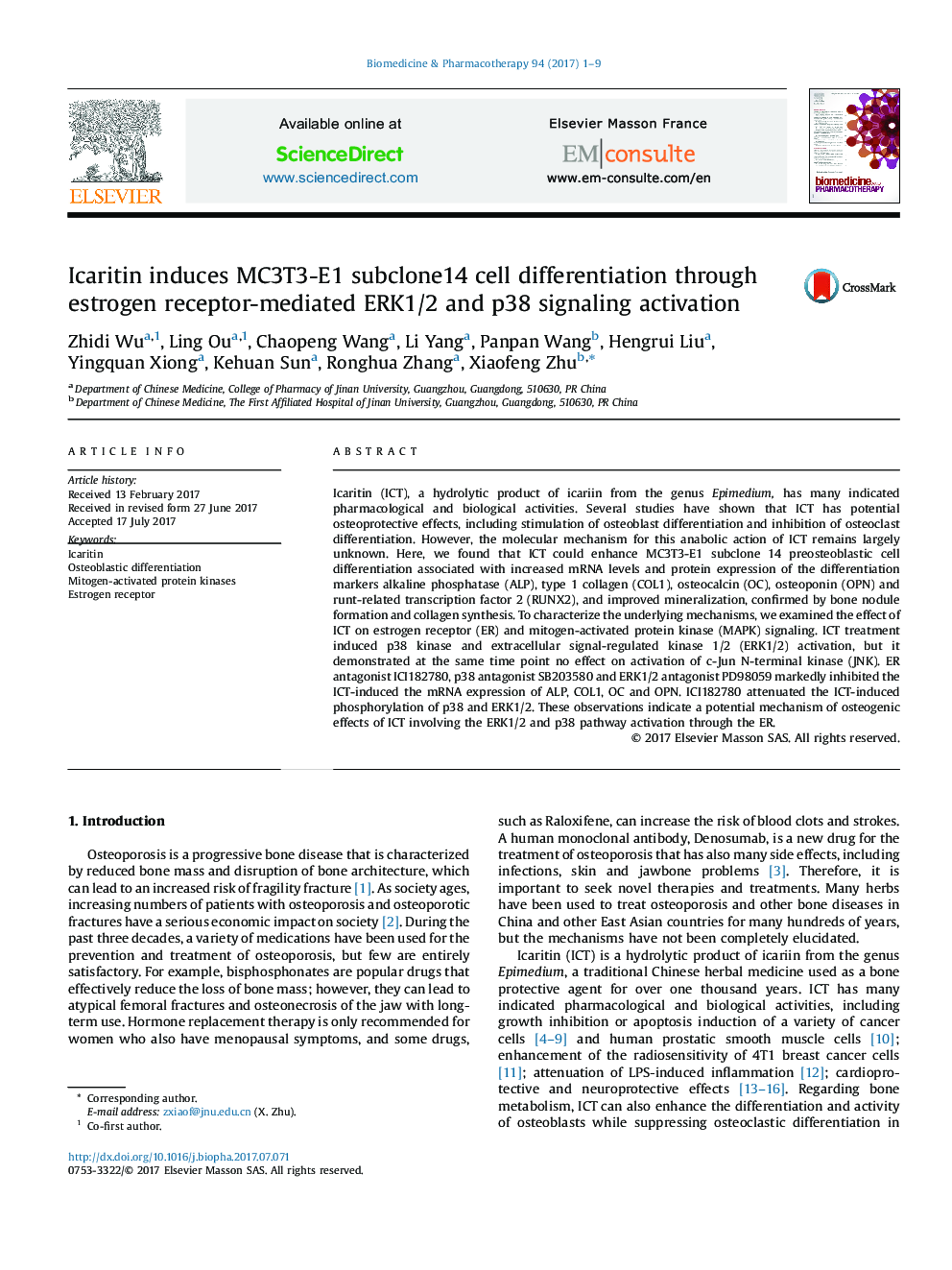| Article ID | Journal | Published Year | Pages | File Type |
|---|---|---|---|---|
| 5552811 | Biomedicine & Pharmacotherapy | 2017 | 9 Pages |
Icaritin (ICT), a hydrolytic product of icariin from the genus Epimedium, has many indicated pharmacological and biological activities. Several studies have shown that ICT has potential osteoprotective effects, including stimulation of osteoblast differentiation and inhibition of osteoclast differentiation. However, the molecular mechanism for this anabolic action of ICT remains largely unknown. Here, we found that ICT could enhance MC3T3-E1 subclone 14 preosteoblastic cell differentiation associated with increased mRNA levels and protein expression of the differentiation markers alkaline phosphatase (ALP), type 1 collagen (COL1), osteocalcin (OC), osteoponin (OPN) and runt-related transcription factor 2 (RUNX2), and improved mineralization, confirmed by bone nodule formation and collagen synthesis. To characterize the underlying mechanisms, we examined the effect of ICT on estrogen receptor (ER) and mitogen-activated protein kinase (MAPK) signaling. ICT treatment induced p38 kinase and extracellular signal-regulated kinase 1/2 (ERK1/2) activation, but it demonstrated at the same time point no effect on activation of c-Jun N-terminal kinase (JNK). ER antagonist ICI182780, p38 antagonist SB203580 and ERK1/2 antagonist PD98059 markedly inhibited the ICT-induced the mRNA expression of ALP, COL1, OC and OPN. ICI182780 attenuated the ICT-induced phosphorylation of p38 and ERK1/2. These observations indicate a potential mechanism of osteogenic effects of ICT involving the ERK1/2 and p38 pathway activation through the ER.
Graphical abstractDownload high-res image (66KB)Download full-size image
